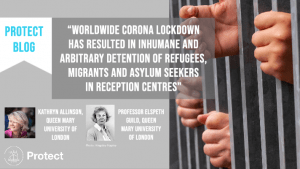by Professor Sir Malcolm Evans & Dr Sofia Galani (University of Bristol)
On 22 April 2021, the University of Bristol Law School hosted a closed meeting on the findings of the Human Rights Committee in A.S., D.I., O.I. and G.D. v Italy. The hosts of the event, Professor Sir Malcolm Evans and Dr Sofia Galani, welcomed academic experts on international human rights law and the law of the sea from UK, European and Australian institutions who reflected on the findings of the Human Rights Committee (the Committee) and discussed the potential impact of its findings on the future of human rights protection at sea. The facts of the complaint, the views of the Committee as well as the dissenting opinions are of great interest and are well worth being read in full. Here, we will only summarise some key points with a view to highlighting the significance of the decision and providing some background into the discussions. (more…)


